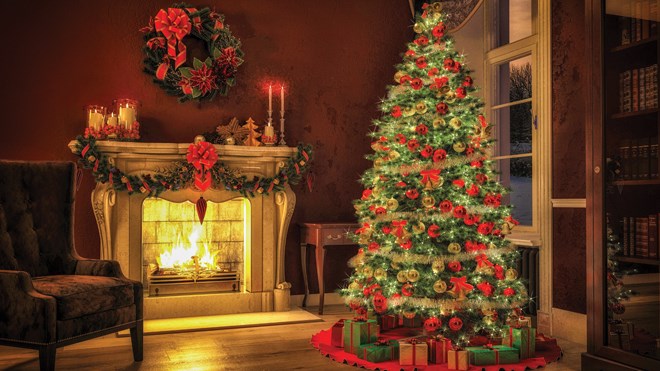As the second decade of the 21st century nears its end, the inhabitants of North America have endured the overuse of the term “war.”
We had the “war on the vehicle” exemplified, allegedly, by the construction of separated bike lanes in cities. Earlier this month, some U.S. politicians launched the “war for net zero carbon emissions,” which unfortunately did not lead to a new global framework to deal with climate change after the meetings in Madrid.
On a lighter note, the “war on Christmas” has been a much-loved topic of Republican Party politicians, their children and like-minded commentators for years. While these hostilities started before the new millennium began, the battle cries grew louder as a result of favourable coverage on cable news, and later, long-winded debates on social media.
Canada has not been immune to these discussions, which are often interpreted as a country ignoring its Christian heritage to accommodate newcomers who profess different religions or none whatsoever. In early 2019, Research Co. found that, for 62% of Canadians, multiculturalism is regarded in a positive light. But just a few weeks earlier, 74% said their favourite greeting for December is “Merry Christmas” and not “Happy Holidays.”
In the spirit of tracking, Research Co. asked Canadians about the season again this year and found a public that is not as committed to the “merry” phrase as last year, as well as groups that will reach the end of the decade with more tension than entertainment.
Across the country, about two thirds of Canadians (65%) personally prefer “Merry Christmas” as a greeting for the season. This represents a nine-point drop in a year. “Happy Holidays,” meanwhile, is up four points (from 14% in 2018 to 18% in 2019). Still, the biggest gainer on a year to year basis is “Not sure/Don’t care either way,” which went from 12% to 17%.
There is no gender gap on the greeting question, but Canadians aged 55 and over are decidedly more convinced about “Merry Christmas” (73%) than their counterparts aged 18 to 34 and 35 to 54 (59% each).
More than seven in 10 residents of Saskatchewan and Manitoba (75%) and Atlantic Canada (73%) prefer “Merry Christmas,” along with 68% of Ontarians, Quebecers and British Columbians.
There are only two demographic groups where more than one in four members express a fondness for “Happy Holidays”: Quebecers (31%) and Canadians aged 18 to 34 (26%). Albertans and Canadians aged 35 to 54 had the highest scores on being undecided or not caring (23% and 20% respectively).
Regardless of greetings, half of Canadians (50%) say they expect the current holiday season to be more fun than stressful, while three in 10 (30%) believe they will experience more stress than fun.
British Columbia leads the way on being the province with the largest proportion of residents who expect to have more enjoyment than anxiety (60%), followed by Saskatchewan and Manitoba (50%), Quebec (also 50%) and Ontario (49%). The lowest-ranked regions on this question are Alberta (45%) and Atlantic Canada (44%).
The other significant change from 2018 is that some Canadians are apparently undergoing a reconnection with spirituality. Last year, 38% of Canadians said religion was “very important” or “moderately important” in their daily lives. This year, the proportion has increased to 48%.
The change in views on religion appears to be driven by Canadians aged 18 to 34 (53%, up from 29% in 2018), and not those aged 55 and over (46%) or aged 35 to 54 (44%).
In British Columbia and Quebec, Canada’s most secular provinces for the past few years, the numbers are not as radical as last year. In each province, 54% of residents told Research Co. in 2018 that religion was “not important at all” in their daily lives. This year, British Columbia stands at 40% and Quebec at 33% on the same question.
The survey shows one group that is definitely not as enthused about the holidays: generation X. Canadians aged 35 to 54 had one of the highest scores on not having a preferred greeting for the season, more than a third of them expect December to be loaded with stress, and more than half see little role for religion in their daily lives.
A combination of economic pressures and a difficult time at work, perhaps even child rearing or caring for elder loved ones, has placed a significant proportion of middle-aged Canadians in a position they may have held at some point in the 1990s before embarking in relationships and careers: holiday outcasts.
Mario Canseco is president of Research Co.
Results are based on an online study conducted December 2–6, 2019, among 1,000 adults in Canada. The data has been statistically weighted according to Canadian census figures for age, gender and region in Canada. The margin of error, which measures sample variability,is plus or minus 3.1 percentage points, 19 times out of 20.


